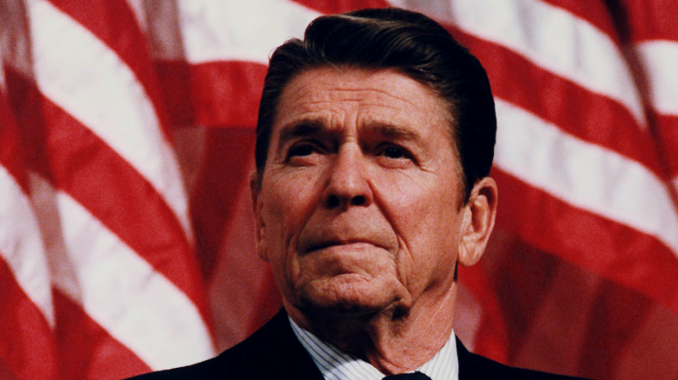
This week, Colorado Representative Lauren Boebert was quoting Ronald Reagan again. She’s done it before… in December she quoted from his 1967 Gubernatorial address, lifting “Freedom is never more than one generation away from extinction”. This week she used “the nine most terrifying words in the English language are: I’m from the government, and I’m here to help.”
These are both excellent quotes, but it seems obvious that either she does not understand context or she expects her constituents and supporters to have little historical knowledge. The source of the second quote is a press conference Reagan held in 1986, where he was explaining why he had supported payouts to farmers in opposition to his preferred policy. He laid the source of the problem clearly at the feet of “government-imposed embargoes and inflation”. She has championed both as she supported Trump’s tariffs and profligate spending.
It occurs to me that both are among the same six or seven quotes I always hear associated with Reagan. Those two, the quip about Mondale’s youth and inexperience, the demand to tear down the wall, his statement about getting things done and credit… the verbal legacy of The Great Communicator has been dustbinned by media figures who despised him and his policy, as would be expected, but it’s been pared to a few easily-misrepresented bumper stickers by those who claim to have respected him, as well.
In light of that, I think it’s appropriate to call forth some of the speeches and statements of the past, in whole or in part. On weekends when my wife needs a break, this seems like a deserving exercise. The possibility will absolutely exist to visit with other orators and writers as appropriate.
So, in light of the massive spending policies of Obama and Trump and the even more extravagant spending efforts announced during this week’s address to Congress, a visit to the 1981 Reagan address to the nation on the economy:
I’m sure you’re getting the idea that the audit presented to me found government policies of the last few decades responsible for our economic troubles. We forgot or just overlooked the fact that government — any government — has a built-in tendency to grow. Now, we all had a hand in looking to government for benefits as if government had some source of revenue other than our earnings. Many if not most of the things we thought of or that government offered to us seemed attractive.
In the years following the Second World War it was easy, for a while at least, to overlook the price tag. Our income more than doubled in the 25 years after the war. We increased our take-home pay in those 25 years by more than we had amassed in all the preceding 150 years put together. Yes, there was some inflation, 1 or 1\1/2\ percent a year. That didn’t bother us. But if we look back at those golden years, we recall that even then voices had been raised, warning that inflation, like radioactivity, was cumulative and that once started it could get out of control.
Some government programs seemed so worthwhile that borrowing to fund them didn’t bother us. By 1960 our national debt stood at $284 billion. Congress in 1971 decided to put a ceiling of 400 billion on our ability to borrow. Today the debt is 934 billion. So-called temporary increases or extensions in the debt ceiling have been allowed 21 times in these 10 years, and now I’ve been forced to ask for another increase in the debt ceiling or the government will be unable to function past the middle of February — and I’ve only been here 16 days. Before we reach the day when we can reduce the debt ceiling, we may in spite of our best efforts see a national debt in excess of a trillion dollars. Now, this is a figure that’s literally beyond our comprehension.
The national debt now stands at more than $26 trillion. The frustration exhibited by many when President Obama announced a $1 trillion infrastructure package is virtually nonexistent when President Biden announces the desire for multiple programs which are individually in excess of a trillion. It seems plausible for at least three reasons: we’ve already gotten used to having that number presented to us; we have a stock market which has jumped into record territories with many individual billionaires around, thus making the number of $1 trillion seem manageable, and we’ve had both parties spending that much money casually for more than a decade.
It seems plausible. It isn’t. We’re deeply in debt, and we’re using the illusion of strength from the stock market to allay concerns. Today – before any of the spending proposed by Biden – our national debt greatly exceeds our yearly GDP; compare that to 1980, when it was threatening to reach a third of our yearly production.
We’ve seen rampant inflation in the past. We know how it was caused, and how it was brought under control. Both parties have been setting the stage for its dramatic and destructive return. People would benefit from visiting history and learning from it, before the nation suffers again.
